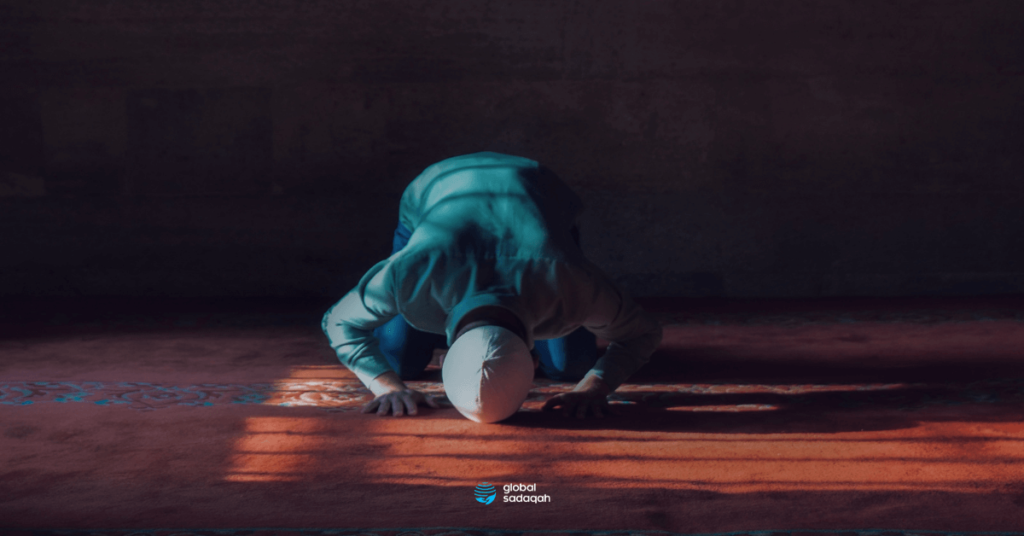Ramadan is the month of spiritual upliftment where the rewards for good deeds are multiplied, the gate of hell is shut, satans are chained and the doors of paradise are wide open. It is the holiest of all months in the Islamic calendar. In it, is a night better than a thousand months. The night is called laylatul qadr, the night of glory, or the night of power.
“The Night of Power is better than a thousand months.” [Surah al-Qadr, 3]
Here are seven things that you need to know about this divine night, including the dua (supplication) that the Prophet ﷺ recommended us to recite for laylatul qadr.
1) The Quran was revealed on laylatul qadr
It is widely understood that the Quran was revealed in the month of Ramadan. This is based on a verse in the Quran that reads, “Ramadan is the month in which the Quran was revealed as a guide for humanity with clear proofs of guidance and the standard to distinguish between right and wrong.” [Surah al-Baqarah, 185]
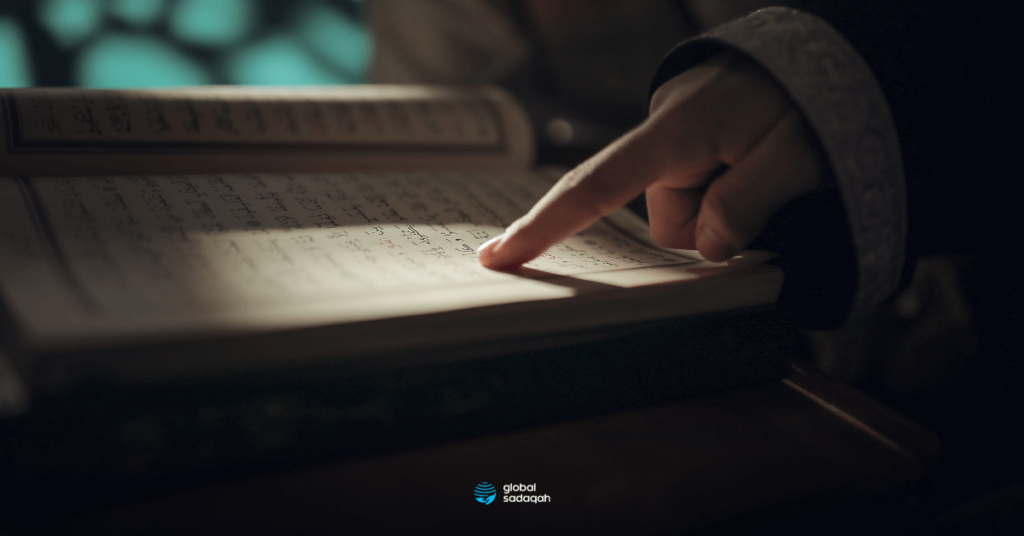
More specifically, it is believed that laylatul qadr was the night in which the angel Jibreel first appeared before the Prophet ﷺ to reveal the first verses of the Quran. The Prophet ﷺ was on a spiritual retreat in the cave of Hira’, near Makkah when the first revelation of the Quran occurred. It began with the first five verses of Surah al-Alaq.
“Indeed, it is We Who sent this Quran down on the Night of Power.” [Surah al-Qadr, 1]
2) Surah dedicated to laylatul qadr
Laylatul qadr is such a divine night that there’s a Surah in the Quran specifically dedicated to describing the night of power. It’s called Surah al-Qadr.
The Surah talks about the majesty of the night, the time when the Quran was first revealed. It is the 97th chapter of the Quran, consisting of five verses, and was revealed in Makkah. The word ‘laylatul qadr’ is mentioned three times in the Surah.
3) The angels descend to the earth on laylatul qadr
On laylatul qadr, the angels, the most obedient servants of Allah come down from heaven to visit the houses of believers and mosques. They look forward to meeting and greeting Muslims who are in worship during the night with the “Salam” (peace).
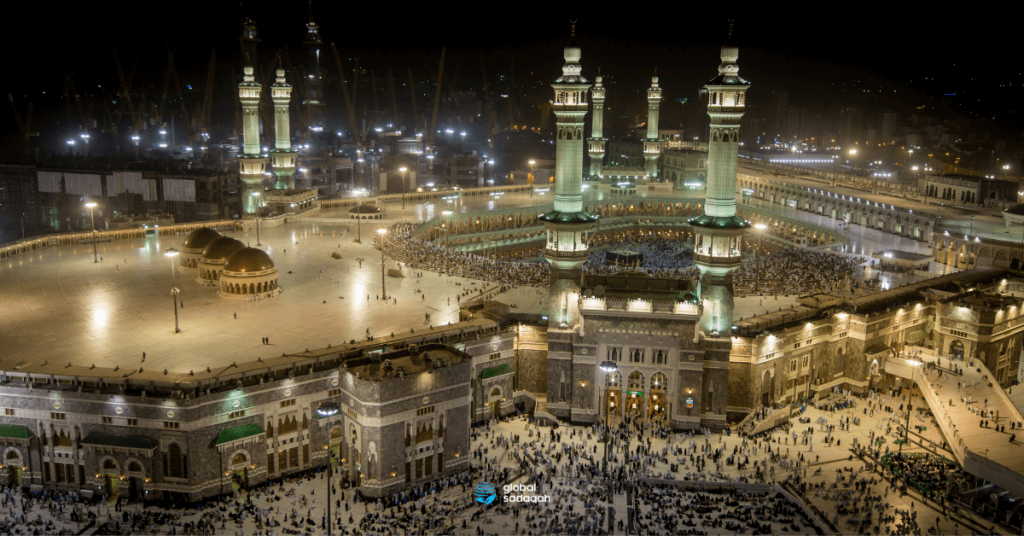
On that night, there are more angels than there are rocks on the earth, and stars in the galaxy. There are tens of thousands of them that the night is filled with their light.
Another meaning for laylatul qadr is also the night of constriction, which depicts the traffic of angels between heaven and earth, carrying praises to Allah.
“That night the angels and the holy spirit descend, by the permission of their Lord, for every decreed matter. [Surah al-Qadr, 4]
Anas narrated that the Prophet ﷺ said, “When laylatul qadr comes Jibreel (the holy spirit) descends with a company of angels who invoke blessings on everyone who is standing or sitting and remembering Allah who is great and glorious. Then when their festival day comes, i.e. the day when they break their fast, Allah speaks proudly of them to His angels saying, “My angels, what is the reward of a hired servant who has fully accomplished his work?” They reply, “Our Lord, his reward is that he should be paid his wage in full.” [Shu’ab al-Iman]
Related: 5 Tips to Achieve Istiqamah
4) A night better than a thousand months
Laylatul qadr is a superior night in many senses including the rewards believers would receive for seeking Allah’s pleasure on the night. The rewards are said to be greater than the rewards one would receive for doing the same act of worship in a thousand months.
“The Night of Power is better than a thousand months.” [Surah al-Qadr, 3]
To put this into perspective, 1,000 months are equivalent to 83 years and 3 months+. That is longer than the average lifespan of a person today! Such tremendous rewards that far outweigh the acts of worship performed in our entire life. It’s definitely a night not to be missed.
5) It occurs in the last 10 days of Ramadan every year
Ibn Umar narrated the Prophet ﷺ was asked about laylatul qadr and replied, “It occurs every Ramadan.” [Mishkat al-Masabih]

While the exact date remains a divine secret, the Prophet ﷺ asks us to seek it in the odd nights of the last 10 days of Ramadan.
“Seek laylatul qadr (Night of Decree) in the odd nights out of the last 10 nights of Ramadan.’ [Bukhari]
The last 10 days of Ramadan is also an opportunity for Muslims to multiply their rewards to help those in need for the sake of Allah through sadaqah. But you don’t have to do it manually every night. Let us take care of it for your when you automate your sadaqah Ramadan via Global Sadaqah.
6) His forgiveness of our past sins
Allah the Most Compassionate and Most Merciful will forgive the past sins of believers who seek His forgiveness and stand in prayers on laylatul qadr. Such is His mercy and compassion.
Abu Hurairah narrated that the Prophet ﷺ said, “Whoever fasted the month of Ramadan out of sincere faith (i.e. belief) and hoping for a reward from Allah, then all his past sins will be forgiven, and whoever stood for the prayers in the night of qadr out of sincere faith and hoping for a reward from Allah, then all his previous sins will be forgiven.” [Bukhari]
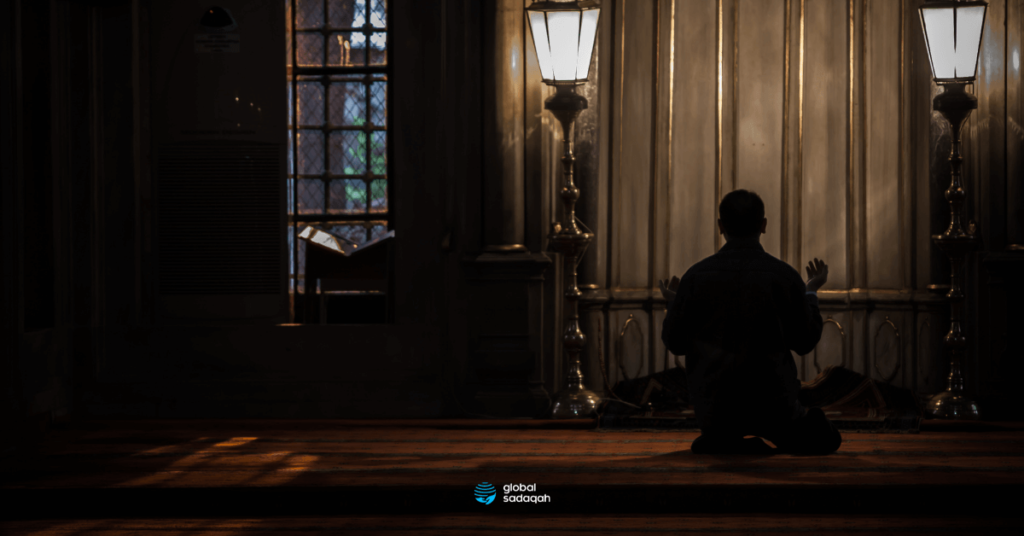
In another hadith reported by Anas, the Prophet ﷺ narrated that Allah says, “My angels, my male and female servants have fulfilled what I have made obligatory for them, and then have come out raising their voices in supplication. By my might, glory, honour, high dignity, and exalted station, I will certainly answer them.” Then He says, “Return, for I have forgiven you and changed your evil deeds into good deeds.” He said that they then return having received forgiveness. [Shu’ab al-Iman]
7) Supplication for forgiveness
It was narrated from ‘Aishah that she asked the Prophet ﷺ, O Messenger of Allah, what do you think I should say in my supplication, if I come upon laylatul qadr?” He said: “Say:
اللَّهُمَّ إِنَّكَ عَفُوٌّ تُحِبُّ الْعَفْوَ فَاعْفُ عَنِّا
Allahumma innaka ‘afuwwun tuhibbul-‘afwa, fa’fu ‘anni
(O Allah, You are Forgiving and love forgiveness, so forgive me).” [Ibn Majah]
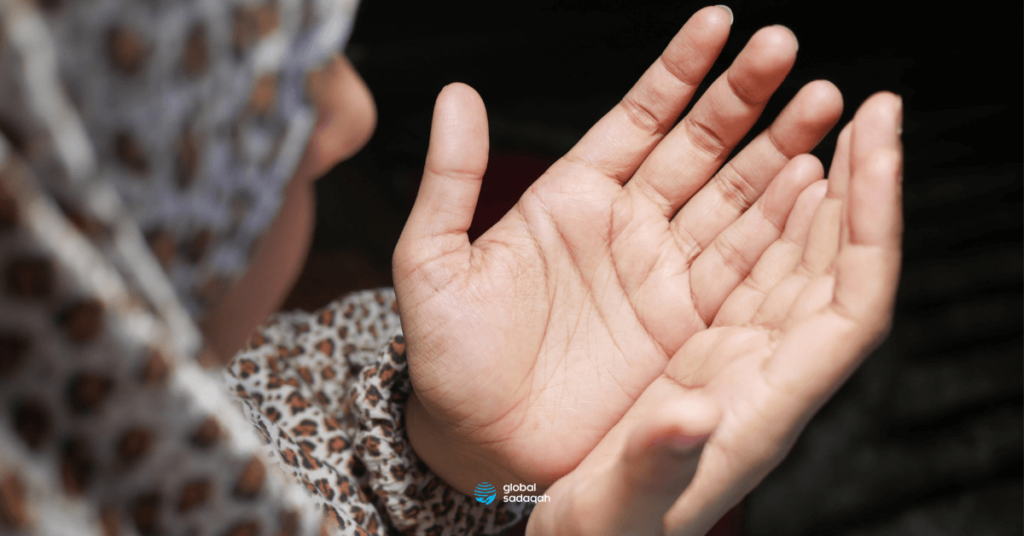
May Allah accept our deeds in this blessed month, allow us to meet the glorious night of laylatul qadr and forgive our sins.
